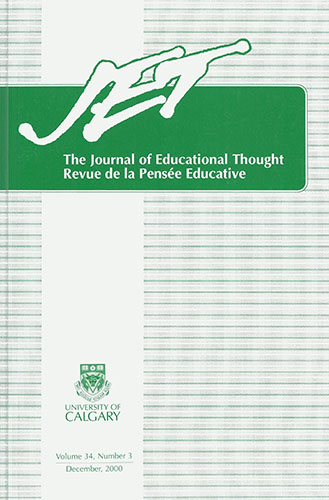The Use of Language in Reflective Teaching: Implications for Self-Understanding
DOI:
https://doi.org/10.55016/ojs/jet.v34i3.52666Abstract
Monologic models of reflection do not adequately explain how teachers come to know. Monologic conceptions of reflection use language in individual and isolated ways. This paper critiques these conceptions of reflection and suggests that individual cognitive models of reflection can perpetuate poor pedagogy. I argue that this pedagogical irony is established once reflection is conceived of as a state of cogito where language is subjugated to an objective and rationalistic function within independent pedagogical queries. Alternatively, it is with biases, I argue, that teachers initially frame events to reflect upon. Through language - dialogue - I suggest that teachers can better understand their reflections, t heir practice, and eventually themselves. I draw largely on three arguments that challenge agent- centered epistemologies that, in turn, implicate the beliefs of teachers and the norm a lizing discourse of education in teachers' pedagogical decisions. I conclude with aspects of Hans-Georg Gadamer's thoughts towards the development of a richer conception of reflective practice and self understanding.
Downloads
Published
Issue
Section
License
The Journal of Educational Thought retains first publication rights for all articles. The Journal grants reproduction rights for noncommercial educational purposes with the provision that full acknowledgement of the work’s source be noted on each copy. The Journal will redirect to the appropriate authors any inquiries for further commercial publication of individual articles. All authors wishing to publish in JET will be asked to fill in and sign a Consent to Publish and Transfer of Copyright agreement.
Authors must affirm that any submission to JET has not been and will not be published or submitted elsewhere while under considration by JET.

